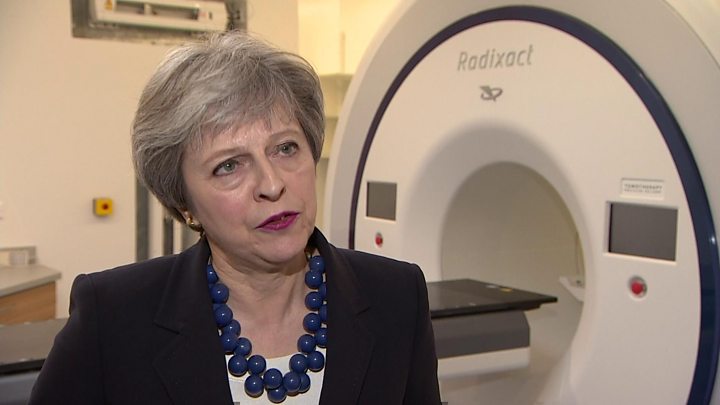As Theresa May weighs up what role - if any - the UK should have in military action against Syria, the question of parliamentary approval will need addressing. So far this week the prime minister has side-stepped it.
Much will depend on the scale and timing of the missile strike the United States seems poised to launch in response to the apparent chemical weapons attack last week.
Theresa May certainly could agree to launch UK missiles from a Royal Navy submarine or RAF jets without MPs giving the green light first. Because, while the recent practice has been for governments to win the backing of parliament before UK military action it is only a convention to do so and a recent one at that.
In March 2003 the Blair government's move to secure the approval of MPs in advance of the Iraq invasion was the first time the decision to go to war had been given to parliament. That established a precedent that has been followed since and Theresa May will be acutely aware of how events played out.
- Syria 'chemical attack': What we know
- Why is there a war in Syria?
- Trump says missiles 'will be coming'
Of most relevance today is the Commons vote David Cameron held in August 2013 on a motion agreeing to potential UK military action against President Assad in Syria following the use of chemical weapons.
MPs were recalled from their summer recess, a debate was held and the government lost the division by 13 votes. Labour opposed the motion but so did 30 Tory MPs and 9 Lib Dems - who were then part of the coalition.
The vote was a political and diplomatic disaster for David Cameron and the US had to shelve its plans for military action. Five years on, there is no chance Theresa May will risk a re-run of that. If she does seek parliamentary approval she will only do so if she knows she can get it.
Mrs May might find other votes more encouraging.
For instance, in 2011 the Commons voted overwhelmingly in favour of military action in Libya by 557 to 13. Crucially, that vote came soon after UK, US and France carried out air strikes against the Libyan forces to enforce a UN-mandated no-fly zone. MPs are currently away on recess and there is no sign a parliamentary recall is brewing.
So if the UK does decide to take part in US-led action in Syria it is possible MPs are asked to vote after the missiles have been launched.
Two other votes are relevant. In September 2014 MPs voted by 524 to 43 to sanction UK air strikes against Islamic State forces in Iraq. In December 2015 David Cameron returned to the Commons to seek authorisation to extend the strikes against IS into Syrian territory. Jeremy Corbyn instructed Labour MPs to vote against the motion but 66 of his own MPs, including front benchers, voted with the government and the motion was passed by 397 votes to 223.
- May: Syria attack 'cannot go unchallenged'
- James Landale: Syria decision looms for May
- March 2003: Tony Blair wins backing for Iraq war despite revolt
So how might House of Commons arithmetic add up if Theresa May took a new motion to MPs asking them to approve military action against President Assad now? Remember, Parliament has never given its backing to military action against the Syrian government, only to air strikes against Islamic State forces based in the country.
Clearly a lot would depend on the wording and scope of the motion.
While there is cross-party revulsion at the apparent use of chemical weapons in Syria many MPs are likely to have concerns about the ramifications that could follow military action, not least a possible confrontation with Russia.
Unlike David Cameron, Theresa May is running a minority government with a working majority of just 13. All votes are potentially dicey. Of those 30 Tory MPs who voted against military action in 2013, 23 are still in the Commons.
It is almost impossible to imagine Jeremy Corbyn instructing his MPs to vote for air strikes. But it is also a safe bet a section of the parliamentary Labour Party would ignore him again.
These are some of the political considerations Theresa May will be mulling over.
Jeremy Corbyn has already said parliament must have a vote. Parliament "should always be given a say on any military action", he said on Wednesday.

The Iraq vote in 2003 set a precedent and the UK's experience of the conflict that followed frames this argument. But it is not parliament's right to decide when Britain goes to war.
The ability for a prime minister to take military action is one of their royal prerogatives. A government is allowed to use that power on behalf of the Crown.
Over the last decade or so ministers have thought about introducing legislation that would enshrine that convention in law but the idea of a War Powers Act has always been abandoned.
Governments do not want to surrender their power to deploy Britain's armed forces and they don't want their hands tied by parliament.
In the end, Theresa May will have to make a political judgement. One of the hardest a prime minister can face.

